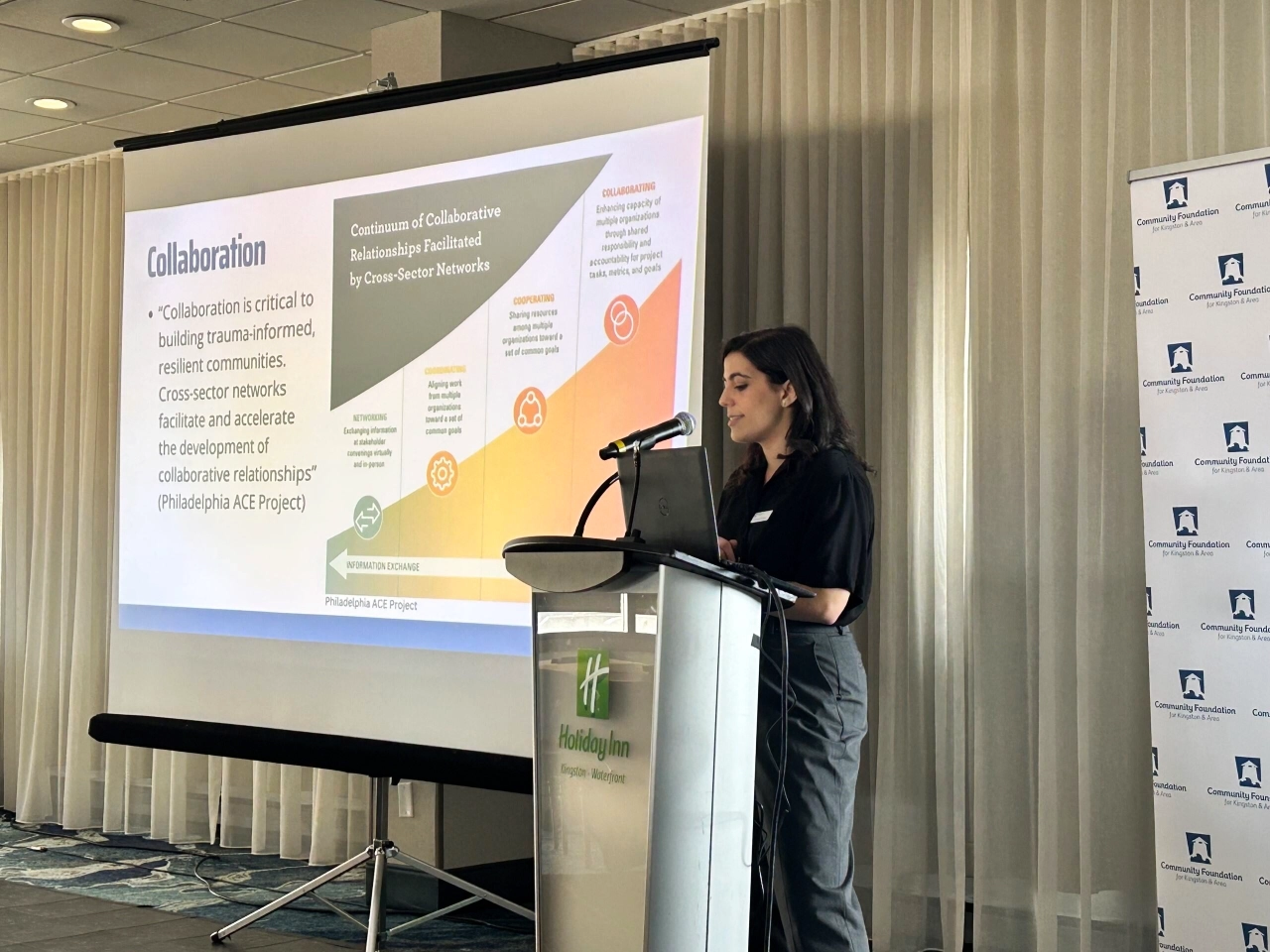There is an epidemic of loneliness in Canada.
Individuals and communities everywhere, including in Kingston and area, are feeling the negative impacts of social isolation on their health and wellbeing. Social isolation is objective and measurable. It can be defined as an individual’s lack of relationships and contacts with family, friends, neighbors, and others in the community.
Loneliness is subjective. It can be defined as a feeling that arises when the quality or quantity of one's social relationships does not meet their expectations. A person might have few social interactions and not feel lonely, while another person could have many social connections but still feel lonely.
While loneliness can affect anyone, older adults are particularly impacted by social isolation. In Canada, approximately one third of people over the age of 65 are at risk of social isolation due to a very limited number of relationships, or minimal social contact (Statistics Canada, 2022). Factors affecting older adults’ social isolation include retirement, ill health, loss of a spouse or friends, changes to mobility, lower income, housing changes, access to transportation, and ageism, with marginalized populations facing additional risk factors.
“Lacking social connection can increase the risk for premature death as much as smoking up to 15 cigarettes a day”
(US Surgeon General Advisory, 2023)
Connection & Belonging
Fostering connection and belonging is one way communities can begin to address the growing issue of loneliness. Preventing, mitigating, and reducing the impacts of social isolation on older adults requires systemic change. Resilience refers to the capacity of individuals, families, and communities to adapt and thrive in the face of life’s challenges, changes, and stresses at any stage in life, from childhood through old age. The needs and strengths of individuals evolve over time and over the lifespan, and community supports must be diverse and adaptable to meet these changing needs effectively.

To address social isolation and foster connection and belonging for older adults a collective impact approach has been encouraged, involving partnerships across private, non-profit, and public sectors, through coordinated and localized actions. (Government of Canada, 2022).
The OACB aims to be a collaborative initiative to unite community organizations and agencies serving older adults in the KFL&A region, who share the intent of reducing social isolation and fostering connection and belonging for older adults in the community. We are dedicated to fostering connections, finding productive synergies, developing systemic awareness of key local issues affecting the connection and belonging of older adults, and improving cross-sector communication. Our intent is to create sustainable connections and community-based solutions to prevent, mitigate, and reduce the impacts of social isolation on older adults in KFL&A that will have long-term impact.
The OACB Forum
The OACB Forum is a community of practice united around the shared intent of reducing social isolation and fostering connection and belonging for older adults in the KFL&A region. Members represent a range of organizations, agencies, and communities from across the region, and bring deep knowledge, expertise, and experience to meetings. The Forum meets monthly, and is a collaborative space dedicated to fostering connections, finding productive synergies, developing systemic awareness of key local issues affecting the connection and belonging of older adults, and improving cross-sector communication.
If your organization is interested in joining the Forum, we invite you to reach out to the OACB Project Manager at oacb@cfka.org to learn more and explore how we can work together to support connection and belonging for older adults in our region.
Elizabeth Nelson
OACB Project Manager
mail oacb@cfka.org
phone 613.546.9696, ext 108


